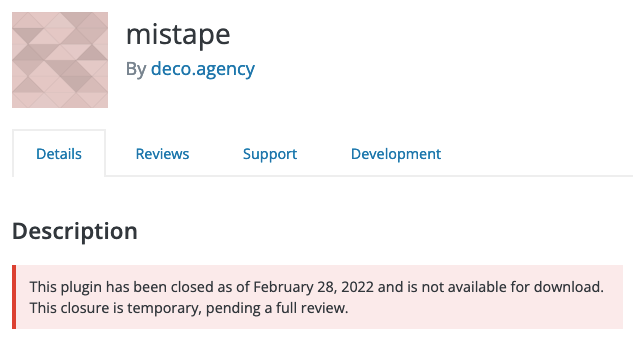Automattic’s WPScan Didn’t Do Basic Verification on Claimed Vulnerability in WordPress Plugin with 700,000+ Installs
Automattic owned security service WPScan is marketed with the claims that they provide “Enterprise-strength WordPress protection for everyone” and that they have a “dedicated team of WordPress security experts”. The reality is very different.
Among many issues we run across with their data is that they are frequently falsely claiming that plugins have had vulnerabilities, in situations where, say, the claimed vulnerability involves an action taken by an Administrator that the plugin is intended to allow and still allows after the supposed vulnerability has been fixed. [Read more]
